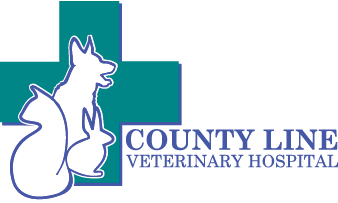Pet Health Articles
-
Over 60% of dogs in North America are either overweight or obese, so paying attention to the balance between activity and calorie intake is important. Once your veterinarian has assessed your dog’s health, they can help you determine an optimal nutritional strategy.
-
This handout discusses the risks and benefits of feeding commercially prepared fresh, whole-food diets, as well as home-prepared recipes for your cat or dog. Topics highlighted include food safety, nutritional imbalances, and the need to ensure that any diet has been well-researched for nutritional safety and completeness.
-
Feeding your dog the appropriate amount of a well-balanced diet is vital to their overall health and well-being. Each dog has unique nutrition needs, dependent on individual preferences and activity levels. In addition, nutritional requirements and dietary preferences change over the course of the dog's lifetime.
-
Because of differences in large and giant dogs' energy and nutrient needs, some pet foods are specifically formulated for these requirements. Adequate diet and feeding management are important for adequate growth and preventing orthopedic problems and gastric dilatation-volvulus (GDV) or bloat. Specific recommendations are included for selecting an appropriate diet for a large or giant breed dog. Feeding management recommendations are also included.
-
Because of differences in toy and small dogs' energy needs and size, it is essential to use pet foods specifically formulated for their requirements. Adequate diet and feeding management are important for proper growth and preventing excessive weight gain. Specific recommendations are included to select an appropriate diet. Feeding management recommendations for puppies and adult dogs are also included.
-
Obesity in Dogs
Todos somos conscientes de los problemas que causa la obesidad en las personas, entre los que destacan alteraciones cardiacas, articulares o respiratorias. Lo que no es tan conocido es que los mimos problemas pueden afectar a nuestras mascotas si sufren de sobrepeso, por eso hay que asegurarse de que pierdan peso en caso necesario.
-
In North America, obesity is the most common preventable disease in dogs. Almost 60% of domestic dogs are overweight. Scientific evidence now shows that fat tissue is not benign; it actively secretes inflammatory hormones and creates oxidative stress, both of which contribute to increased risks for several diseases, as well as a decreased quality of life. Treating obesity as a chronic, inflammatory condition means regular veterinary assessments and strict attention to portion control.
-
Obesity in Cats
Los problemas dentales son probablemente tan frecuentes en los perros como en las personas y posiblemente igual de dolorosos. Sin embargo, los perros no tienen la misma capacidad que nosotros para manifestar sus molestias y hasta hace relativamente poco muchos de los problemas dentales de nuestras mascotas pasaban desapercibidos.
-
Well-bred Old English Sheepdogs are placid, adaptable individuals who are loving and loyal to their chosen people. These big, lovable dogs can be just the ticket for active households whose members do not mind spending a lot of time tending the tresses of their canine companions.
-
Nobody has ever accused the Otterhound of primping and preening. She is a come-as-you-are kind of dog, with casual good looks and a laid-back personality.

